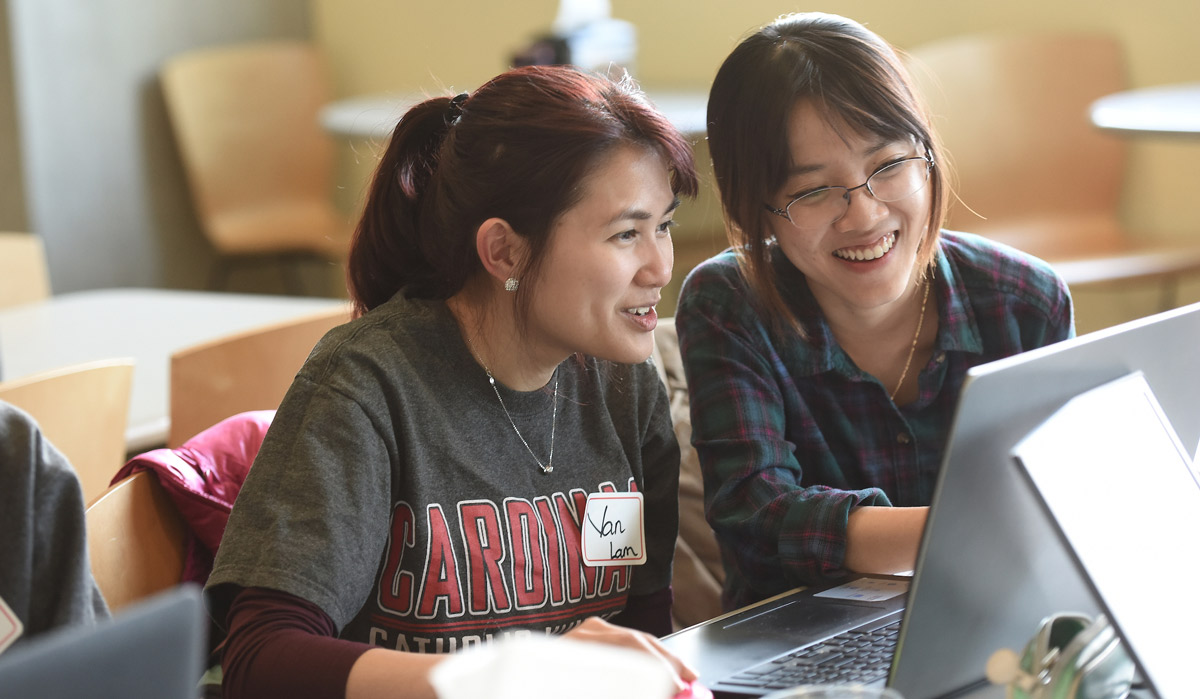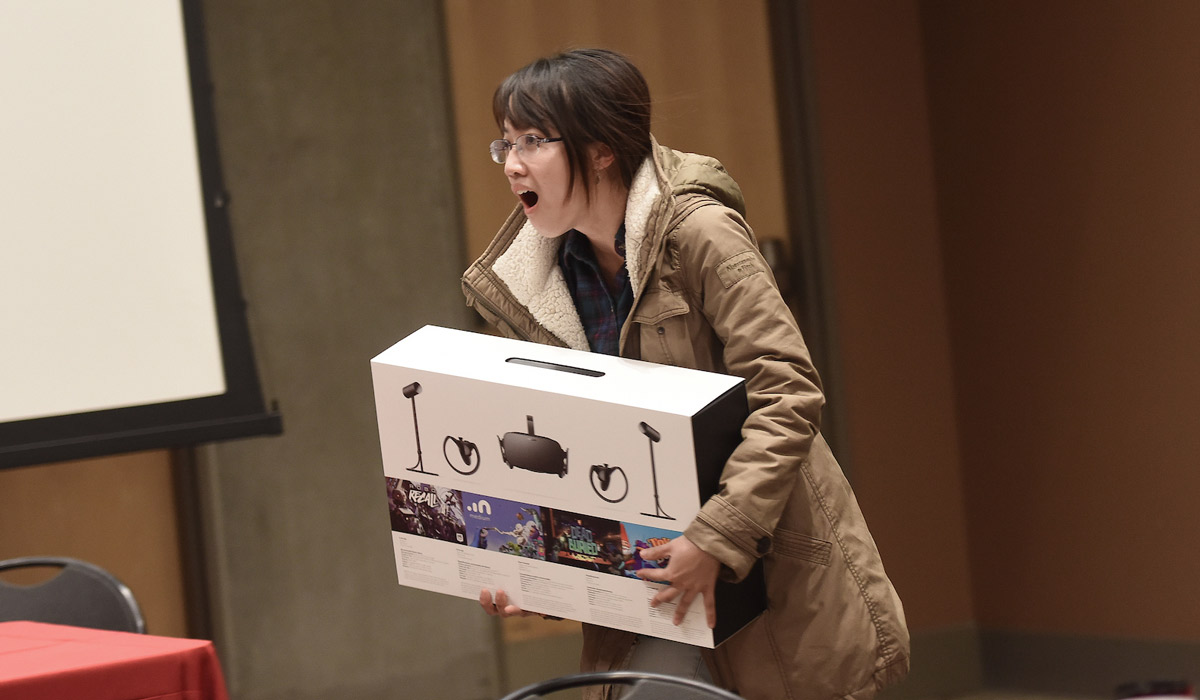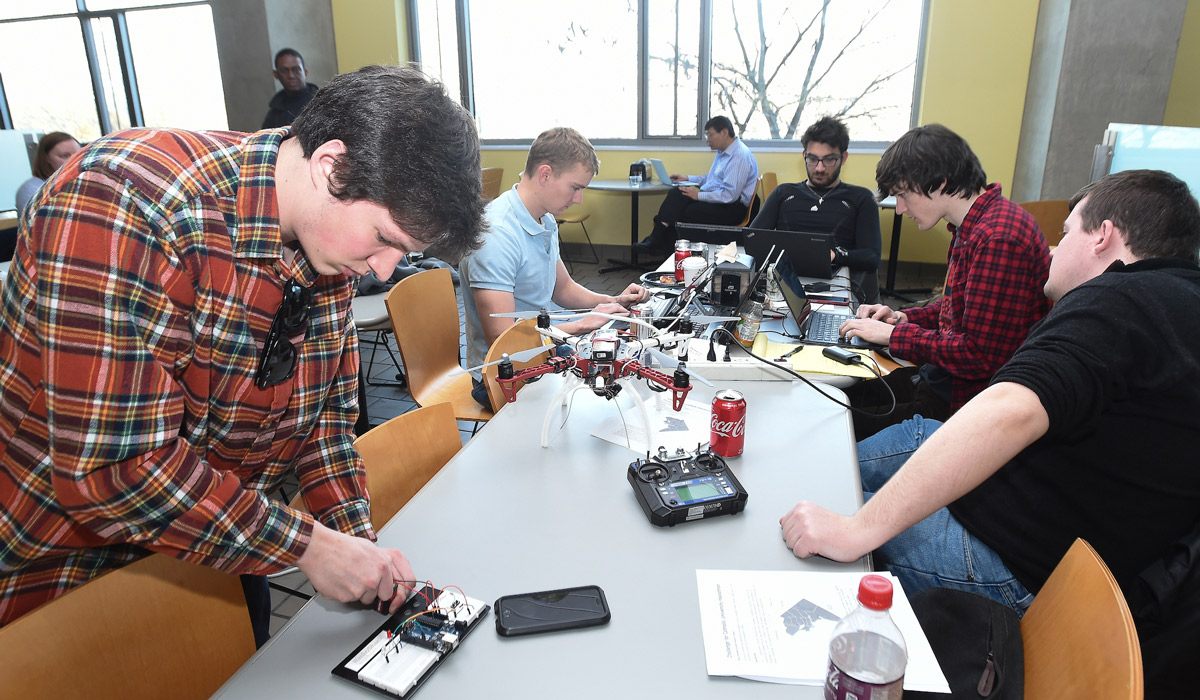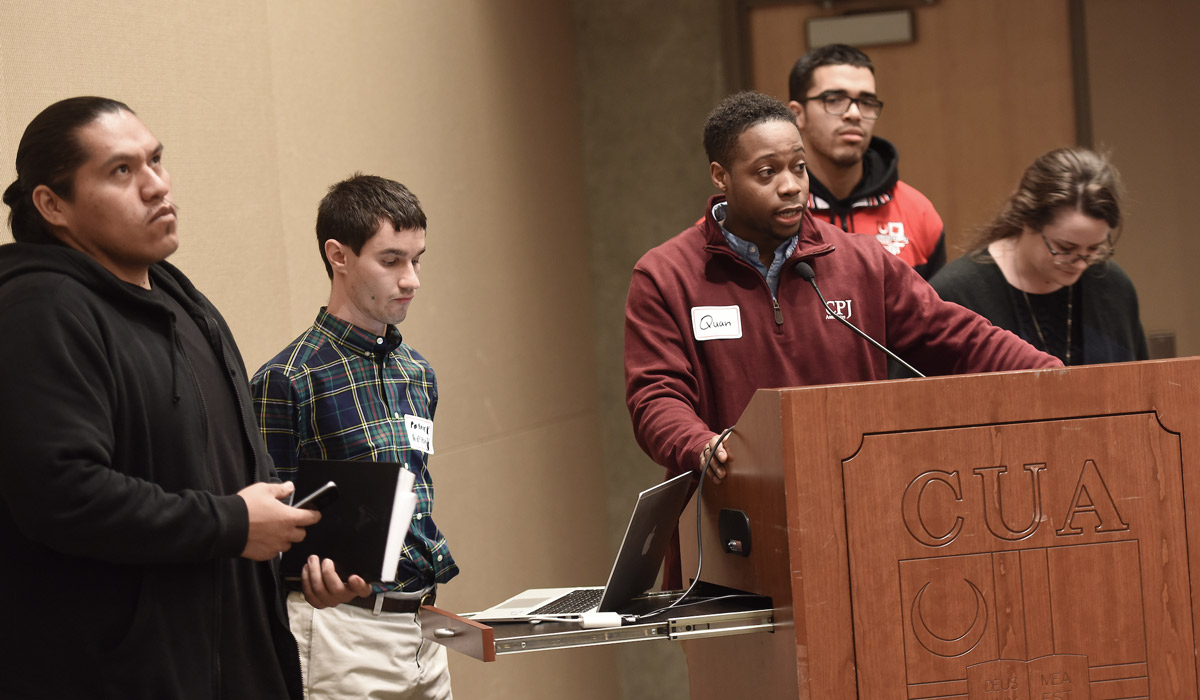

It was a day of creativity and collaborative thinking on Jan. 27, as Catholic University students competed to develop high-tech solutions for helping Washington, D.C.’s homeless population.
The students were participating in Hacking Homelessness, the University’s first-ever hackathon, which was hosted by the School of Engineering in collaboration with the D.C. Department of Human Services. As part of the competition, 40 students were split into teams and challenged to develop a program or system that would use data science and engineering to improve the lives of people living in homelessness. After four-and-a-half hours of intensive work with their teams, the students presented their ideas before a panel of judges.

The event was sponsored by Rocket Software, which provided Oculus Rift virtual reality headsets to each member of the first-place winning team. The winners will also have the chance to compete in the first-ever Vatican Hackathon, which is scheduled to take place this March in Rome.
Associate Professor of Engineering Hang Liu was one of the main event organizers for the day. He believes hackathons are valuable learning experiences, allowing students to “use their own technical background to solve real-world problems.”
He noted that the event was open to students from all majors, in order to encourage new and different ways of thinking.
“The problem we are trying to solve is a social problem, not purely a technical one, so we need this multidisciplinary thinking,” he said. “It’s not just about coding something or programming something. We need to have a more complete solution to really understand the situation and form an idea that can solve the problem.”

Claiborne Gayden, the development director for the School of Engineering, said the hackathon was also a response to the global grand challenge of “renewing urban infrastructure” that was issued by the National Academy of Engineering in 2008. Catholic University’s engineering school is one of only a few Catholic engineering programs in the United States to participate in the National Academy of Engineering’s Grand Challenge Scholars Program, which prepares students to solve some of the largest challenges facing society in the 21st century.
The day began with a panel discussion featuring representatives from local government and the technology industry, who spoke about the ways data and technology can help to alleviate problems related to homelessness.
Carter Hewgley, the senior advisor for family and homeless services at the Department of Human Services, explained how data can be used to model system dynamics that contribute to homelessness or to optimize the algorithms used to determine which homeless clients are in the most urgent need of assistance.
Hackathons, Hewgley said, are a great source of new ideas for the government.

“We’re never going to get where we need to go in combatting homelessness without partnerships,” he said. “Hackathons are a really good way to build those relationships and leverage people’s talents for the problem we all have, which is that too many of our neighbors are at risk.”
After explaining the dangers homeless people face during hypothermia season, Hewgley said a major need in D.C. is for a new tracking system that could use data and technology to help government and nonprofit responders locate and keep track of people who might need assistance on a cold night.
Engineering doctoral student Vy Bui spent the afternoon working with her team to develop a mobile app that draws on mapping technology similar to that used by the rideshare app, Uber. If manufactured, the app would be used by social workers to locate people in need and classify whether or not they had been approached and offered help.
Bui, who normally studies medical imaging, said she enjoyed being able to use her engineering talents for a good cause.
“This project is similar to what I want to do, using engineering to improve human lives,” she said. “This app would save time and make work easier for social workers. They’ll have less traveling and they could help more people.”
Though he has not studied engineering, architecture student LeQuan Clinton was able to bring his city-planning and sustainable-design knowledge to the hackathon. He felt like the day was a valuable opportunity for students to give a fresh perspective on the issue of homelessness.
“A lot of times decisions are made by people in positions of power who might not have first-hand experience with some of the issues,” Clinton said. “A lot of students might have more daily awareness of this growing problem so we can come up with new ways of solving it.”
“I think our students are always looking for ways that they can apply their education to solve real problems,” said John Judge, dean of engineering. “If you’re in the classroom learning an equation or method, it can be dry at times. To have a chance to take that knowledge and use it to help people, I think that’s really compelling.”